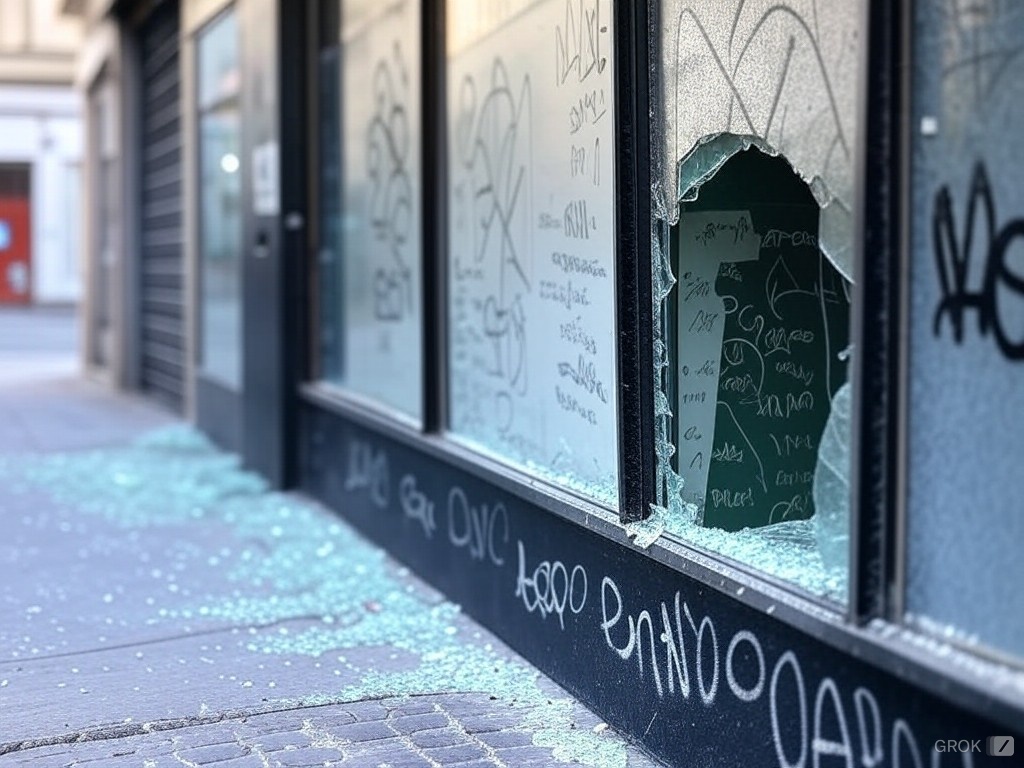
The Israeli government has issued a comprehensive travel advisory for its citizens planning to visit Europe, categorizing countries based on safety levels. This advisory reflects the current geopolitical climate and security concerns for Israelis and Jews traveling abroad.
Here’s a detailed look at the travel advice, including a chart of European nations organized alphabetically and by threat level.
Recent Surge in Antisemitic Acts in Europe
Antisemitism in Europe has seen an alarming rise, with incidents ranging from physical violence to vandalism and hate speech. This trend, often tied to global political tensions, poses an increased threat to Jewish communities and travelers alike. High-profile incidents, such as synagogue attacks, desecration of Jewish cemeteries, Kosher restaurants attacked, and public protests with antisemitic rhetoric, underscore the importance of exercising caution.
Understanding the Threat Levels:
- Level 1 – Safe: Indicates countries where there are no specific threats against Israelis or Jews, and normal precautions are sufficient.
- Level 2 – Potential Threat: Suggests an increased risk, where travelers should be vigilant and possibly avoid certain areas or events.
- Level 3 – Avoid: Indicates a significant threat, where travel is not recommended unless absolutely necessary.
- Level 4 – Prohibited: Signifies an extreme threat, where travel is outright banned for safety reasons.
European Nations Travel Advisory Chart:
>> If you prefer to view this as a map, click here: Israeli Government Travel Advice to Europe Map
| Country | Threat Level | Status |
|---|---|---|
| Albania | Level 1 | Safe |
| Andorra | Level 1 | Safe |
| Austria | Level 2 | Potential Threat |
| Belarus | Level 1 | Safe |
| Belgium | Level 2 | Potential Threat |
| Bosnia & Herzegovina | Level 3 | Avoid |
| Bulgaria | Level 1 | Safe |
| Croatia | Level 1 | Safe |
| Czech Republic | Level 1 | Safe |
| Denmark | Level 1 | Safe |
| Estonia | Level 1 | Safe |
| Finland | Level 2 | Potential Threat |
| France | Level 2 | Potential Threat |
| Germany | Level 2 | Potential Threat |
| Greece | Level 2 | Potential Threat |
| Hungary | Level 1 | Safe |
| Iceland | Level 1 | Safe |
| Ireland | Level 2 | Potential Threat |
| Italy | Level 2 | Potential Threat |
| Kosovo | Level 1 | Safe |
| Latvia | Level 1 | Safe |
| Liechtenstein | Level 1 | Safe |
| Lithuania | Level 1 | Safe |
| Luxembourg | Level 1 | Safe |
| Moldova | Level 1 | Safe |
| Monaco | Level 1 | Safe |
| Montenegro | Level 1 | Safe |
| Netherlands | Level 2 | Potential Threat |
| North Macedonia | Level 1 | Safe |
| Norway | Level 1 | Safe |
| Poland | Level 1 | Safe |
| Portugal | Level 1 | Safe |
| Romania | Level 1 | Safe |
| Russia | Level 3 | Avoid |
| San Marino | Level 1 | Safe |
| Serbia | Level 1 | Safe |
| Slovakia | Level 1 | Safe |
| Slovenia | Level 1 | Safe |
| Spain | Level 2 | Potential Threat |
| Sweden | Level 2 | Potential Threat |
| Switzerland | Level 1 | Safe |
| Turkey | Level 4 | Prohibited |
| Ukraine | Level 2 | Potential Threat |
| United Kingdom | Level 2 | Potential Threat |
| Vatican City | Level 1 | Safe |

Analysis and Recommendations:
The advisory reflects a complex and odd security landscape in Europe, influenced by political tensions, historical conflicts, and varying degrees of antisemitism. Countries like Russia, Bosnia, and Turkey should be avoided due to severe security risks, including political instability and high levels of antisemitic incidents.
Western European nations like France, Germany, Spain, and the UK, despite being democracies with strong security measures, are categorized under potential threat due to sporadic antisemitic attacks and the continued and growing presence of radical groups.
Travel Tips for Israeli and Jewish Travelers
To ensure safety, the Israeli National Security Council (NSC) offers the following guidelines for travelers:
- Research Destinations Thoroughly: Familiarize yourself with the security situation in your destination country by checking the Israeli NSC Travel Warnings page.
- Avoid Wearing Identifiable Symbols: Limit displaying religious symbols, such as kippahs or Star of David jewelry, in public to avoid drawing attention.
- Maintain a Low Profile: Use private transportation, avoid large crowds, and keep travel itineraries discreet.
- Stay Updated: Regularly monitor local news and updates from Israeli embassies or consulates in your destination country.
- Emergency Preparedness: Keep local emergency contacts, Israeli consular information, and a reliable mobile phone on hand at all times.

Conclusion:
For Israeli & Jewish travelers, this advisory serves as a crucial tool for planning safe travel within Europe. While some countries are deemed safe, the potential threat level in many popular European destinations underscores the need for heightened awareness and precautionary measures. This travel advice not only ensures personal safety but also reflects broader geopolitical dynamics affecting Jewish communities worldwide. Always check for the most current updates before traveling, as conditions can change rapidly. Anything can happen anywhere, including countries designated as Safe. Be vigilant when traveling.
Safe countries like Portugal, Iceland, and most of Eastern Europe reflect lower levels of antisemitism and better security for Jewish communities and visitors.
While much of Europe remains a desirable destination for travel, the Israeli NSC urges Israelis and Jewish travelers to remain vigilant. Understanding the threat levels assigned to each country and staying informed about antisemitic trends are crucial steps in ensuring safety abroad. By exercising caution and preparedness, travelers can minimize risks while exploring new destinations.
For more detailed information, visit the official Israeli National Security Council website.
For detailed and timely updates on global antisemitic incidents, organizations such as the Anti-Defamation League and World Jewish Congress are valuable resources.







